Brad Zuchero, PhD || Assistant Professor
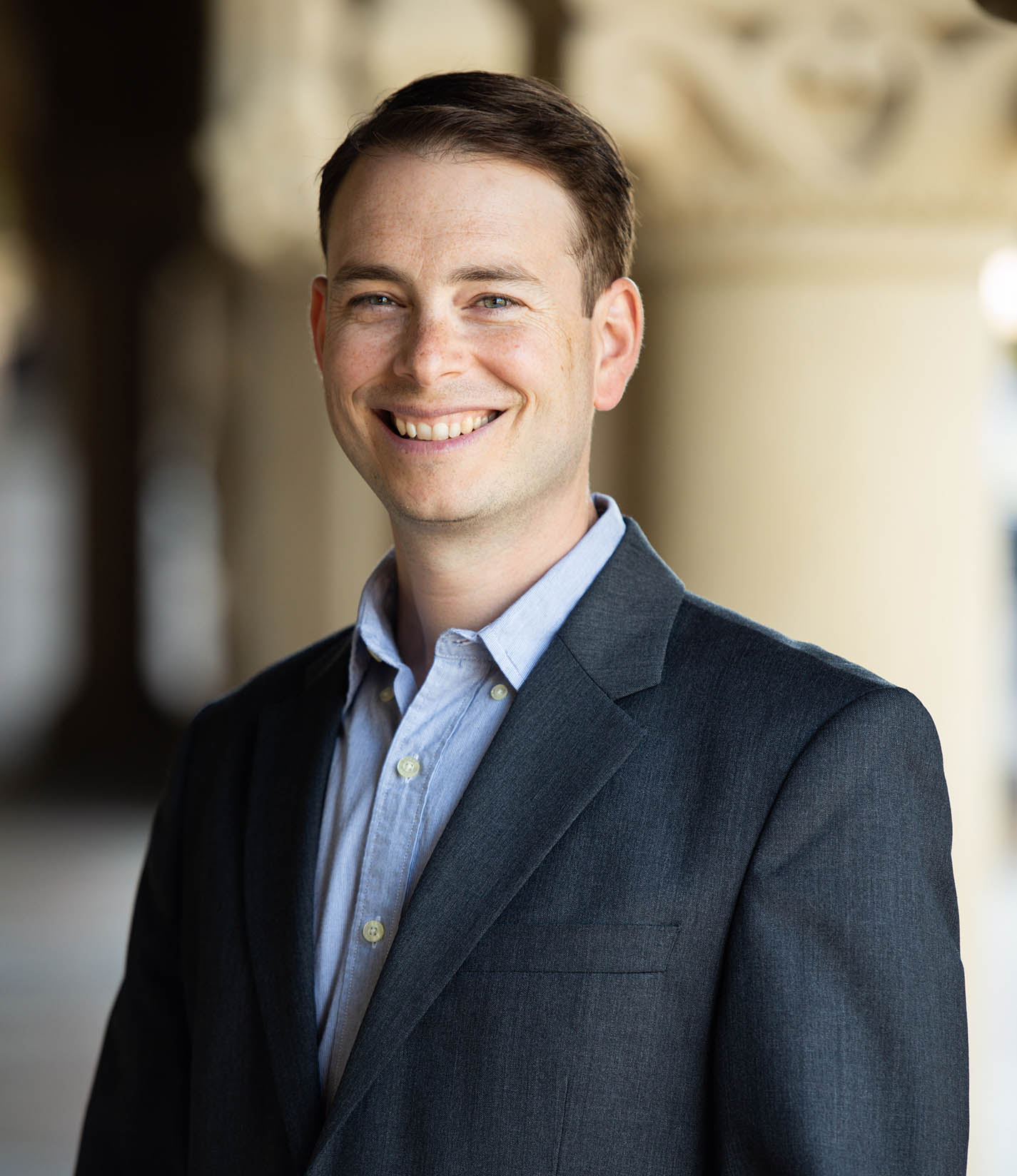
Dr. J. Bradley Zuchero is an Assistant Professor in the Department of Neurosurgery, Stanford University School of Medicine. Brad has a longstanding interest in how cells in the brain interact to build a functional nervous system, regulate its function in adults, and how these interactions are perturbed in disease.
Brad grew up in the woods of Pennsylvania, becoming interested in science at a young age with the encouragement of his teacher parents. He majored in biology at Vassar College, where he first fell in love with research. Brad did his Ph.D. work with Dr. Dyche Mullins at UCSF, discovering and characterizing a novel protein that builds actin filaments in cells. In his postdoctoral work with Dr. Ben Barres at Stanford, he brought his expertise in cell biology to the study of how oligodendrocytes form myelin, with the goal of understanding why myelination commonly fails in diseases like multiple sclerosis (MS).
While working with Dr. Barres, Brad discovered that formation of myelin in the central nervous system occurs by a surprising and seemingly paradoxical mechanism: the actin cytoskeleton that is required for most cells to change shape and move is taken apart at the start of myelination. Understanding this mechanism, and testing whether it is perturbed in diseases affecting myelination is now a major research goal of his lab. Since starting in 2017, his lab has created a suite of novel genetic tools for perturbing actin in oligodendrocytes or any eukaryotic cell type—and is now using them to probe mechanisms of myelination. Recently his lab expanded its cell biology focus to ask how new membrane is added to power myelination, and discovered that exocytosis by the SNARE proteins Vamp2 and Vamp3 is required for myelin formation during development. In collaboration with Justin Du Bois's lab (Stanford Chemistry), the lab also discovered a signal that myelinating glia secrete to help neurons "come online" during development (Kantarci, Elvira, et al.). Brad hopes that work in his lab will contribute to cures for MS, Alzheimer's disease, and other diseases of the nervous system.
Brad has received numerous awards for his work including being named the Covert-Matera Families Endowed Faculty Scholar in 2023, the Beckman Young Investigator Award, McKnight Scholar Award, Harry Weaver Neuroscience Scholar Award, Koret Early Career Faculty Development Award, a Career Transition Award from the National MS Society, a Life Sciences Research Foundation postdoctoral fellowship, the Discovery Science Award and Pioneer Award from the Myelin Repair Foundation, and a Research Award from the Marine Biological Laboratory in Woods Hole. His lab also acknowledges support from the NIH (NINDS R01 and R21, NIA R21), a Stanford ADRC Developmental Grant, and additional grants from the Ludwig Family Foundation, Sanofi iAwards, and philanthropic support.
Some of his best ideas have come while cycling, running, or hiking around Northern California with his family.
CURRENT LAB MEMBERS
Kathryn Wu || MD-PhD Student
Kathryn is a student in the Medical Scientist Training Program, and a 2020 Wu Tsai Neurosciences Institute Stanford Interdisciplinary Graduate Fellows. She is interested in understanding the process of myelination and how it goes awry in disease. Kathryn first fell in love with biology during her undergraduate training at Swarthmore College, where she started out studying invasive species and soil respiration in the Crum Woods with Dr. Jose-Luis Machado. She eventually found her way to an air conditioned lab at the University of Pennsylvania, where she studied epigenetic changes in amyotrophic lateral sclerosis (ALS) and frontotemporal dementia (FTD) under Dr. Edward Lee. After finishing college, Kathryn joined Dr. Robert Baloh's lab at Cedars Sinai Medical Center, where she worked on developing and characterizing cellular models for ALS and FTD . Outside of lab and class, Kathryn enjoys going to bible study, climbing rocks both indoors and outdoors, and attempting to dance west coast swing.

Madeline Cooper || MD-PhD Student
Madeline is a student in the Medical Scientist Training Program, and a 2020 Stanford Bio-X Graduate Fellow. She is excited to spend her PhD combining her background in biomaterials with her love of the best organ (the brain!) to study oligodendrocytes in physiologic microenvironments. Her goal is to shed light on the biophysical forces that drive myelin formation. Madeline's fascination with understanding how cells respond to their physical environments started during her undergraduate studies at Harvard where she researched mechanotransduction in the Mooney Laboratory for Cell and Tissue Engineering. She then worked at Draper in Cambridge, MA developing microfluidic in vitro organ models before coming to Stanford. If you can't find Madeline in the lab she's probably out pursuing one of her other passions: mentoring younger students, running, cooking, dancing, or doing any outdoor activity that lets her explore California!
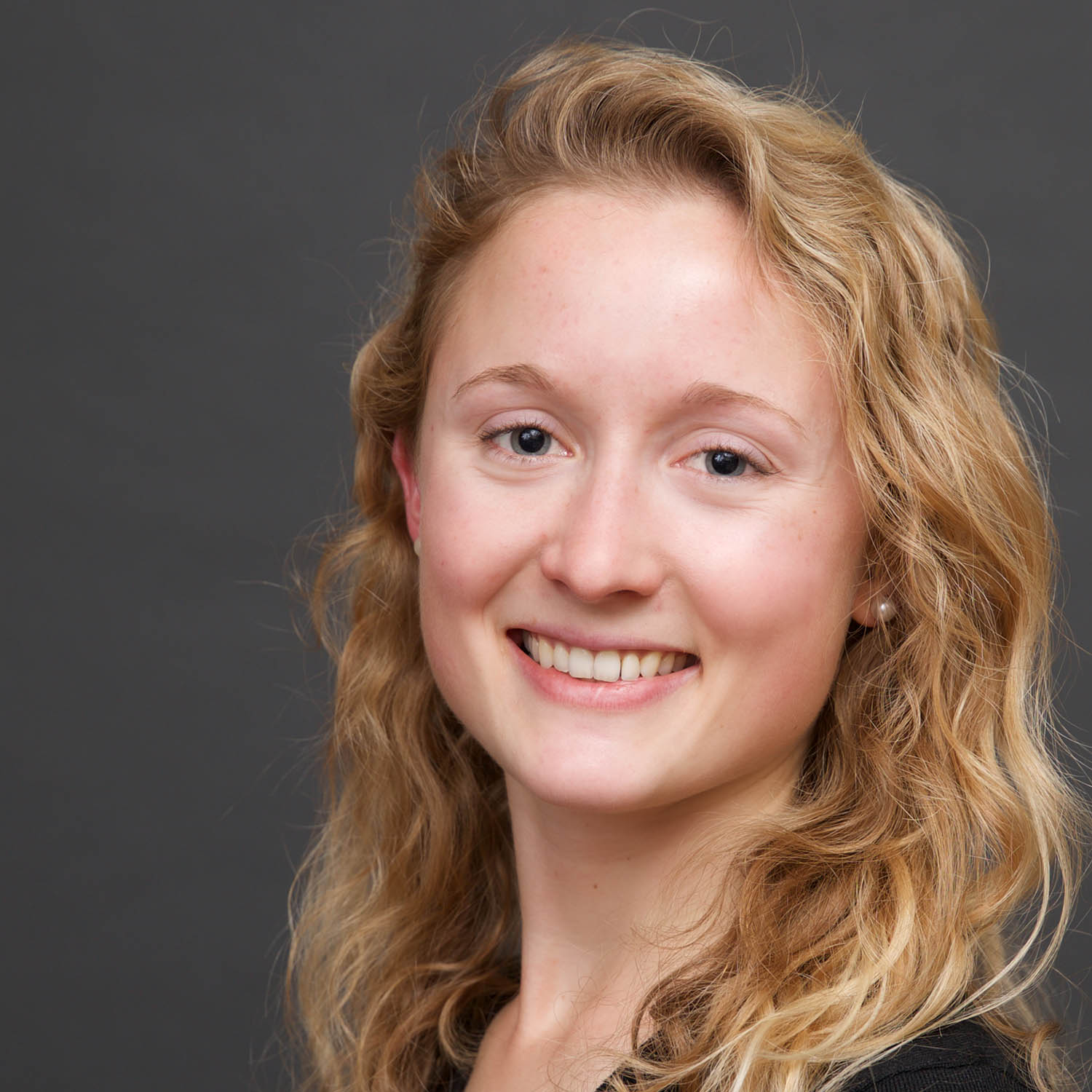
Mable Lam, Ph.D. || Postdoctoral fellow
Mable is a Helen Hay Whitney postdoctoral research fellow in the lab, also supported by a Wu Tsai Neurosciences Institute Postdoctoral Scholar Award, a Stanford ADRC REC Scholars Fellowship, and previously by a Vision T32. She is interested in understanding cellular mechanisms that mediate myelination. She did her Ph.D. at UCSF with Peter Walter to study how cells respond to protein folding stress in the secretory pathway (ER stress). She discovered that misfolded proteins in the secretory pathway are detected by a death receptor to activate apoptosis during unresolved stress. She is now applying her background in secretory trafficking to elucidate mechanisms of membrane addition during myelination. In 2022, she published a co-first author paper with Koji Takeo revealing the importance of exocytosis for myelination (Lam, Takeo et al. 2022 Nature Communications). Outside of the laboratory, she enjoys Olympic weightlifting and breakfast foods.
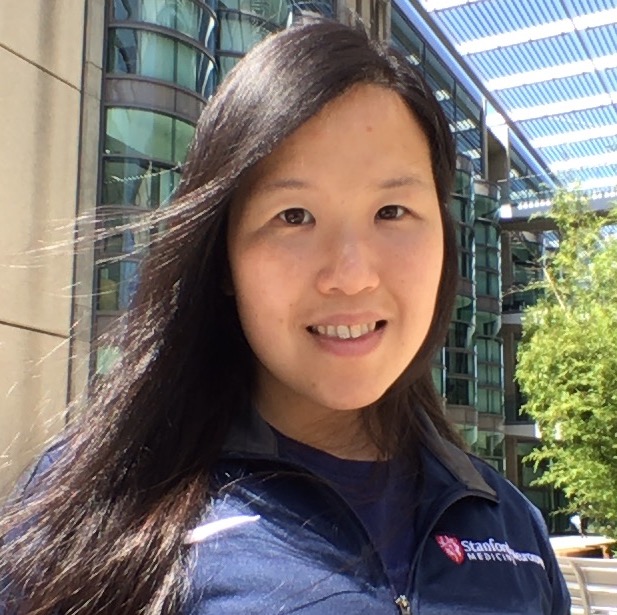
Maya Weigel || PhD Student
Maya is a graduate student in the Stem Cell Biology and Regenerative Medicine PhD Program. In the Zuchero Lab, she is interested in studying how oligodendrocytes contribute to central nervous system pathology in neurodegenerative diseases. Maya first became fascinated with the nervous system during her undergraduate studies in Biology at Pomona College where she studied the role of chondroitin sulfate proteoglycans in Drosophila central nervous system development. She subsequently moved back to the Bay Area to work as a research associate in Dr. Ben Barres’s lab at Stanford, where she studied neurotoxic reactive astrocytes. Most importantly, Maya’s work in the Barres Lab drew her into the world of glial biology, and she hasn’t looked back. Outside of the lab, Maya enjoys running (and does it a lot), growing plants and turning them into salads, eating soft-serve ice cream, and basking in the Bay Area sunshine.
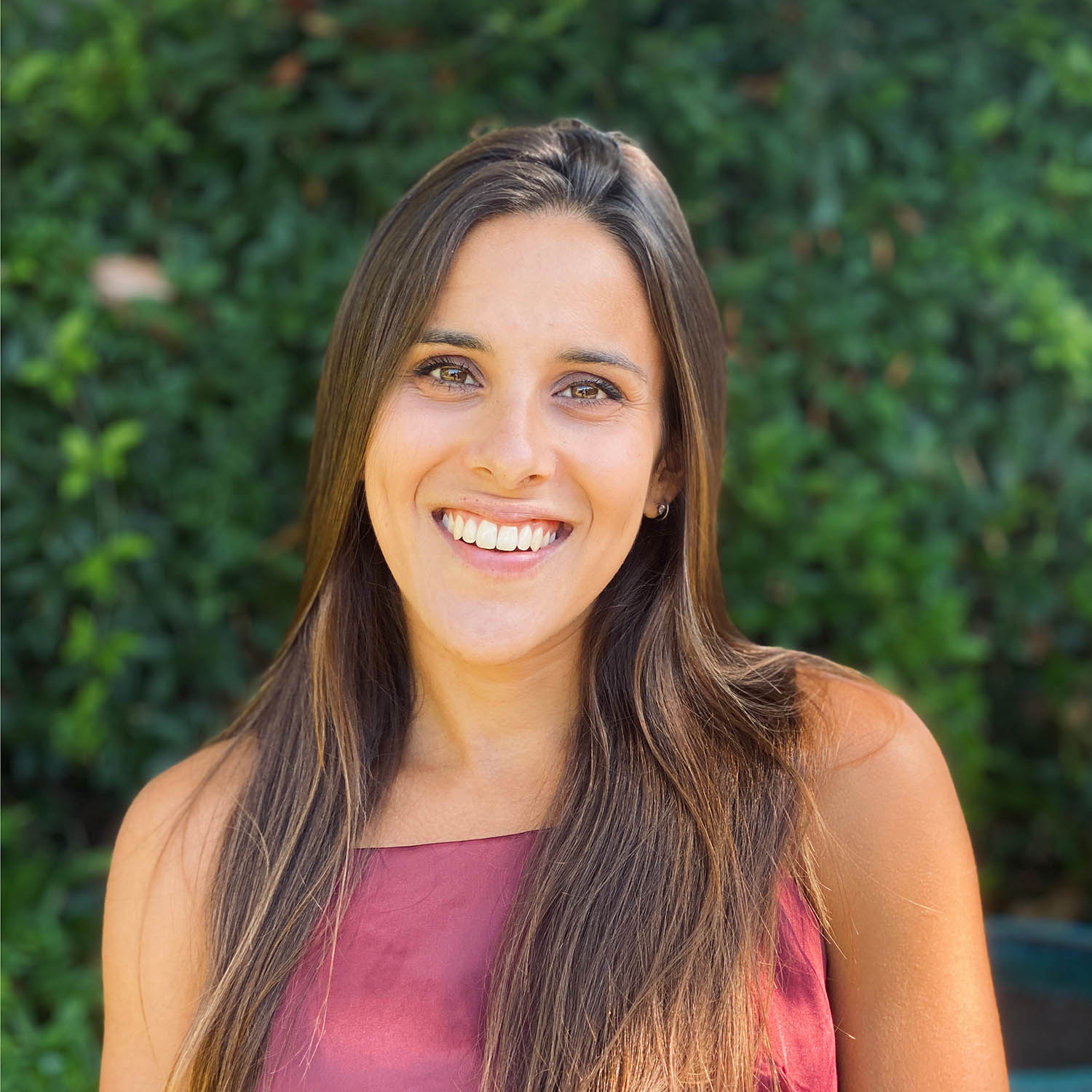
Khanh Tran || Masters student
Khanh is a Stanford University masters student. Khanh first developed a passion for biology in high school, leading her to reach out to the Zuchero Lab in hopes of pursuing her newfound interest through an internship. Beginning the summer after her sophomore year, she interned under Dr. Husniye Kantarci--a mentor who, along with Brad, taught her nearly everything she now knows and loves about glia. She worked in the lab through her undergraduate at Stanford, and now as a masters student. Though her interest in biology isn’t limited to just one field--especially after spending a fascinating summer in the Bendall Lab where she studied hematopoietic cancers under Dr. Albert Tsai--she hopes to one day pursue a Ph.D. in neuroscience. When she’s not procrastinating on schoolwork or working at the bench, Khanh enjoys cross country running, exploring the great outdoors with her friends, and making lattes as a part-time barista at the nearby Big Basin Cafe.

Emma O'Connell || PhD Student
Emma is a graduate student in the Neurosciences PhD program co-mentored by Dr. Marius Wernig. She is interested in the role of glia in neurodegeneration and aims to combine the oligodendrocyte expertise of the Zuchero lab and the disease-modeling expertise of the Wernig lab. Her interest in the brain began during her undergraduate training at Georgetown University, where she studied how Sox transcription factors promote neurogenesis across species. She then transitioned to more translational research during her post-bac fellowship at the NIH where she did both preclinical and clinical research on alcohol use disorder. She then made the cross-country trip to Stanford to begin her PhD, where she hopes to apply her translational experience to study the role of Alzheimer’s disease proteins in both rodent and human stem cell-derived oligodendrocytes. Outside of lab, Emma enjoys mentoring students, playing tennis, crocheting, and exploring beach towns along the California coast.
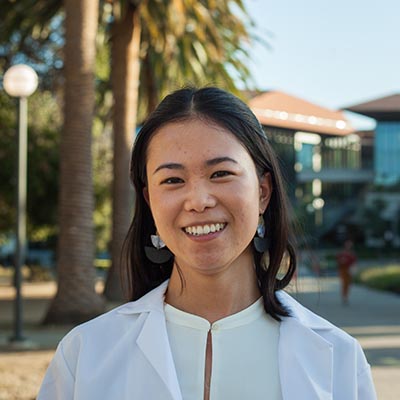
Eduardo Chaparro Barriera || Stanford REACH Postbac and LSRP1
Eduardo Chaparro Barriera recently graduated from the University of Puerto Rico Mayaguez with a Chemistry degree and joined the Zuchero lab as a REACH Postbac Scholar. While in Puerto Rico, his research experience expanded across the chemical and biological synthesis of metal sulfide nanoparticles. His interest in neurobiology ignited after a summer internship in Dr. Kumar’s lab at UC-Berkeley, where he used neurofilaments to study neurodegenerative models in vitro. Now, as an LSRP1 in the Zuchero lab, Eduardo is eager to expand his expertise and sharpen his skills in neurobiology with the aim of pursuing a Molecular and Cellular Biology Ph.D. Under the guidance of Dr. Mable Lam, Eduardo is currently exploring the mechanisms of VAMP2/3-mediated exocytosis in cultured oligodendrocytes. Outside of lab, Eduardo is a talented semi-professional barber. In his free time, he enjoys playing basketball and discovering new restaurants around the Bay Area.
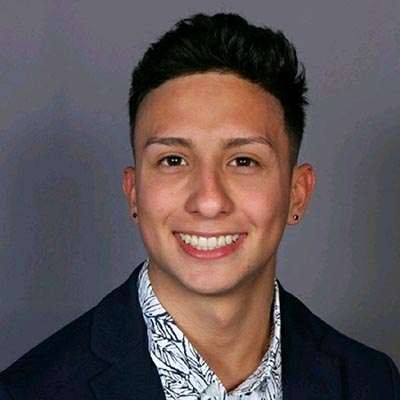
Lauren Duan || MD-PhD Student
Lauren is an MD-PhD student in the MSTP. She is excited to explore oligodendrocyte biology in aging and neurodegenerative disease in the Zuchero lab. Lauren’s interest in neurodegeneration first sparked while working with Dr. Lindsey Hayes as a neuroscience major at Johns Hopkins, where she studied nucleocytoplasmic transport defects and dynamics in ALS-FTD. After graduating, she also spent time studying cardiovascular biology in the labs of Drs. Sean Wu and William Goodyer at Stanford, using single-cell multi-omics methods and developing novel antibody conjugates for targeted imaging and therapeutic applications. When not in lab or class, she loves eating her way through the Bay Area, walking her cat Junie, hiking (slowly), and playing tennis.
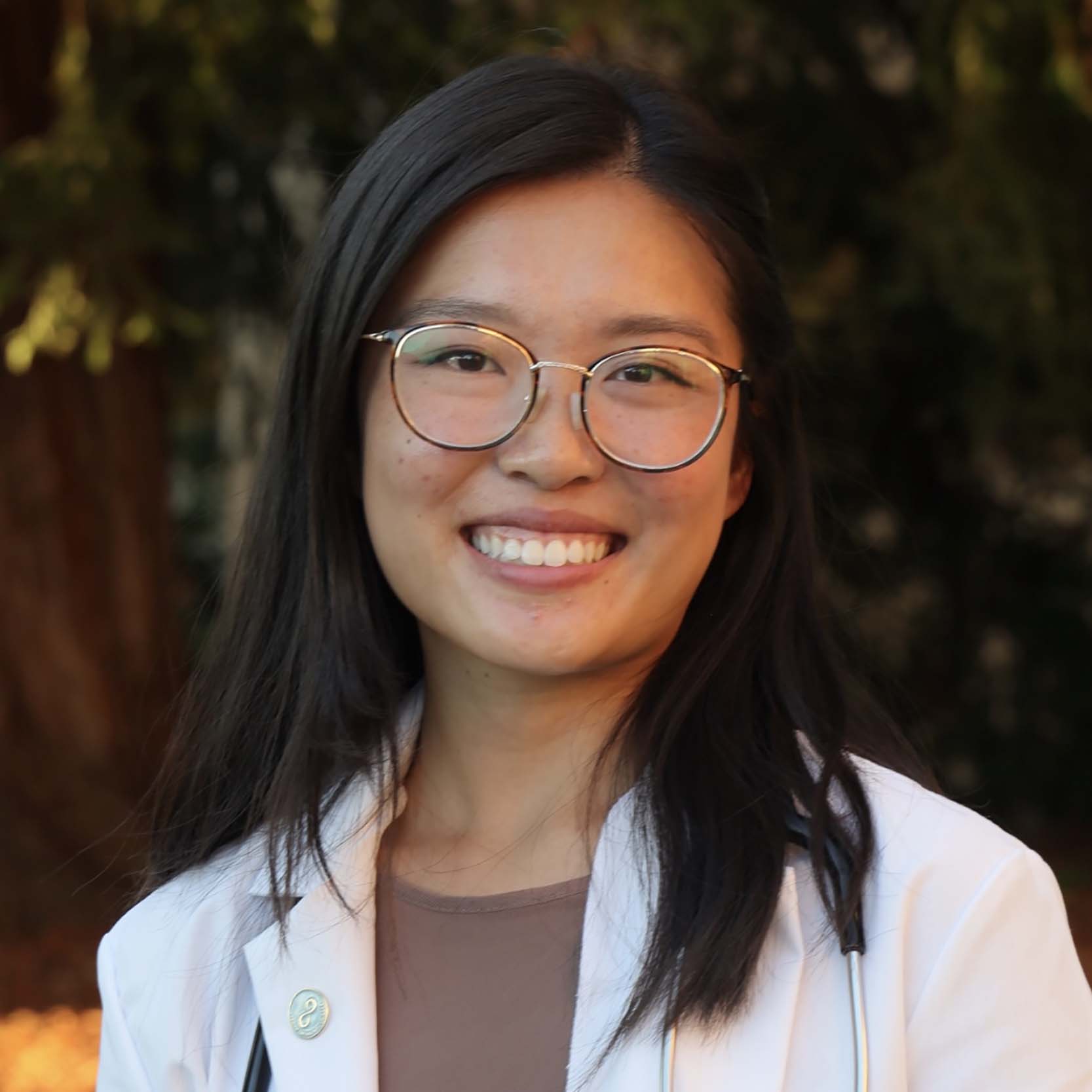
Puja Chopade || Undergraduate Student
Puja is an undergraduate student at Stanford and 2024 Bio-X fellow. She first became interested in neurodegenerative disease research when conducting a meta-analysis of Alzheimer’s and Parkinson’s disease clinical trials. She transitioned to wet lab research at the Research Science Institute where she spent a summer studying the correlation between mitochondrial networks and cancer drug resistance biomarkers. In the Zuchero lab, she is interested in improving gene editing tools to better study the involvement of myelin dysfunction in neurodegenerative disease. During her freshman year, she worked under the direction of Dr. Graham Jones, who taught her the basics of glial cell biology research and rodent surgery. She now works with PhD student Emma O’Connell. Outside of the lab, Puja enjoys rock climbing, social dance, and volunteering as an EMT. She also loves trying Salt & Straw ice cream flavors (especially cinnamon honey fried chicken) and making silly birthday gifts for everyone in the lab!

Cal Bridges || PhD Student
Cal is a student in the Neurosciences PhD program. He is interested in studying the mechanisms that cause oligodendrocytes to take on disease phenotypes in hopes of identifying potential therapeutic targets for demyelinating diseases. Cal first became interested in cell biology during his undergraduate studies at the University of Redlands where he investigated the effects of space travel on cardiovascular progenitor cells. He then worked as a research assistant in the Tawfik Lab here at Stanford, where he studied the transcriptome of microglia in the context of chronic pain. While in the Tawfik Lab, Cal became fascinated with the translational potential of glial cells and is excited to spend his PhD studying oligodendrocytes in demyelinating diseases. Outside of lab, Cal can usually be found playing golf, snowboarding, or spending time with family and friends somewhere in beautiful California.
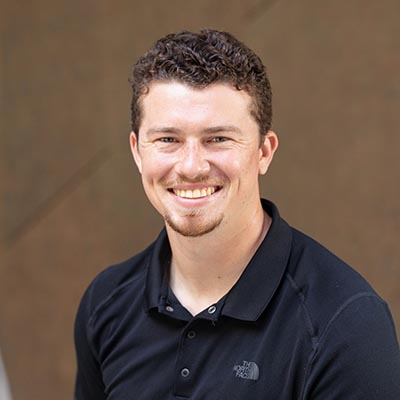
Duc Huynh, Ph.D. || Postdoctoral fellow
Duc is a postdoctoral research fellow interested in the roles of myelin in intelligence and neurodegeneration. Duc obtained his bachelor’s degree in Biochemistry from UCLA, then spent a year gaining research experience in the lab of Professor Todd Yeates. There, he employed the principles of protein self-assembly to develop an imaging scaffold for visualizing small proteins using cryogenic electron microscopy. This exposure to structural biology sparked his fascination with protein functions, inspiring him to pursue a doctoral degree in Biochemistry at Duke University under the guidance of Professor Michael Boyce. His PhD research focused on understanding how O-GlcNAcylation, the intracellular glycosylation, regulates mammalian neurobiological functions. Using biochemical and cellular glycobiology assays, Duc discovered that O-GlcNAcylation of neurofilament light (NF-L), a neuronal cytoskeletal protein crucial for axonal function, is required for NF-L assembly states and neuronal organelle motility. In the Zuchero lab, he will investigate how dysregulation of myelin contributes to nervous system disorders at the cellular and physiological level. Outside of the laboratory, Duc enjoys food trips, traveling, hiking in National Parks, swimming, playing volleyball, and socializing over drinks.

Veronika Rodriguez || Lab Manager, LSRP-1
Veronika is a Life Science Research Professional in Zuchero Lab. For her undergraduate degree at UC Davis, she double majored in Russian and Biochemistry and Molecular Biology. Although she studied Russian, she is in fact Ukrainian and prays for peace for both Russia and Ukraine. ![]() She is dedicated to her role of lab manager and is excited to call Zuchero Lab her new home. In her previous lab managing position in Finno Lab at UC Davis, she studied vitamin E and how it relates to neurodegeneration in horses. Veronika enjoys arts and crafts such as crocheting and cross stitching.
She is dedicated to her role of lab manager and is excited to call Zuchero Lab her new home. In her previous lab managing position in Finno Lab at UC Davis, she studied vitamin E and how it relates to neurodegeneration in horses. Veronika enjoys arts and crafts such as crocheting and cross stitching.
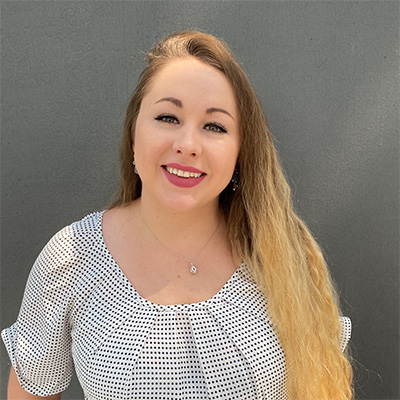
Eva Carvalho, Ph.D. || Postdoctoral Fellow
Eva Carvalho is a postdoctoral research fellow focused on the biophysical mechanisms of axonal ensheathment and myelin formation. With a master in Bioengineering and a PhD in Biomedical Engineering from the University of Porto (Portugal), she first became fascinated by oligodendrocytes during her master thesis where she studied the crosstalk between astrogliosis and oligodendrocyte differentiation. During her PhD, Eva combined her interests in biomaterials, mechanobiology and myelin by developing 3D models to explore how external mechanical properties, such as stiffness and axonal characteristics, affect oligodendrocytes. She discovered that softer hydrogels and axonal rigidity significantly influence cell differentiation and behavior. Eva aims to advance fundamental myelin biology and contribute to the development of treatments for myelin-related diseases. Beyond research, Eva is passionate about science communication and is a proud member of the Portuguese neuroscience project "Fala-me Neuro" (Talk Neuro to Me). Outside the lab, Eva enjoys spending time in nature, spending time with animals (dogs, cats, rabbits, pigs – the more, the best!), doing DIY crafts, gardening, and solving puzzles.

Tom Soulaire || MS Student
Tom is a MS student in the Mechanical Engineering department. He studied engineering at Ecole Polytechnique (France) before joining Stanford. With a focus on Machine Learning, Robotics and Biomedical Engineering, he is excited about applying engineering solutions to meaningful problems, especially in the medical field. In the Zuchero Lab, he is interested in improving and automating analysis frameworks thanks to Machine Leaning and Data Science. Outside of lab, you can find him fencing, hiking or discovering new Californian wines!
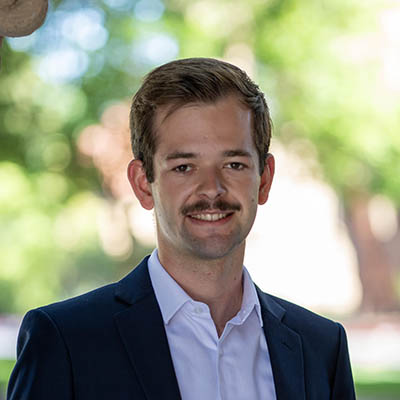
Christina Bazan || Administrative Assistant
Christina is an Administrative Assistant to Drs. Zuchero, Melanie Hayden-Gephart, and Gordon Li.
LAB ALUMNAE/I
Prof. Husniye Kantarci, PhD || Postdoctoral fellow
Husniye was the first postdoctoral fellow to join the lab, and was a Berry Postdoctoral Fellow and Stanford School of Medicine Dean's Postdoctoral Fellow. In 2024, Husniye started her own lab in the Department of Neuroscience, UT-Austin, as a tenure-track Assistant Professor.
Graham Jones, PhD || Postdoctoral fellow
Graham was a postdoctoral fellow and Stanford Epilepsy Training Program fellow in the lab from 2019-2024, before moving to Septerna as a Scientist.
Manasi Iyer, PhD || PhD Student
Manasi was the first graduate student in the lab, and was a Stanford Graduate Fellowship (SGF) in Science and Engineering fellow. After graduating in 2023, she moved to UCSF to do a postdoc with Prof. Mazen Kheirbek.
Nick Ambiel || Postbac / Life Sciences Research Professional 1
Nick was an LSRP1 technician and lab manager in the lab from 2020-2023 (keeping the lab running through the pandemic--no small feat), before entering the Neuroscience Graduate Program at OHSU to work towards his PhD.
Arne Raasakka, PhD || Visiting Scholar
Arne was a visiting scholar in the lab from 2022-2023, from Prof. Petri Kursula's lab at the University of Bergen, Norway.
Miguel Garcia, PhD || Postdoctoral fellow
Miguel was a postdoc and Wu Tsai Neurosciences Institute Interdisciplinary Scholar in the lab from 2018-2022, before moving to Addition Therapeutics as a Scientist.
Chase Swinton || Undergraduate student, Stanford
Chase was an undergraduate researcher in the lab in 2021, working under the mentorship of Manasi Iyer.
Alex Munch || Life Sciences Research Professional 2
Alex was our lab manager and technician from 2018-2020, before starting her PhD in Neuroscience at the Icahn School of Medicine at Mount Sinai.
Koji Takeo, PhD || Visiting Scholar
Koji was a visiting scholar in the lab from 2018-2020, before returning to the Pharmaceutical Research Laboratories of Toray Industries, Inc. in Japan as a Researcher.
Emily Gardner || Undergraduate student, Stanford
Emily was an undergraduate researcher in the lab in 2020, working under the mentorship of Miguel Garcia.
Rahul Patel || Technician/LSRP1
Rahul helped launch the lab as a technician and lab manager in 2017, before starting his PhD in Neuroscience at UNC Chapel Hill.